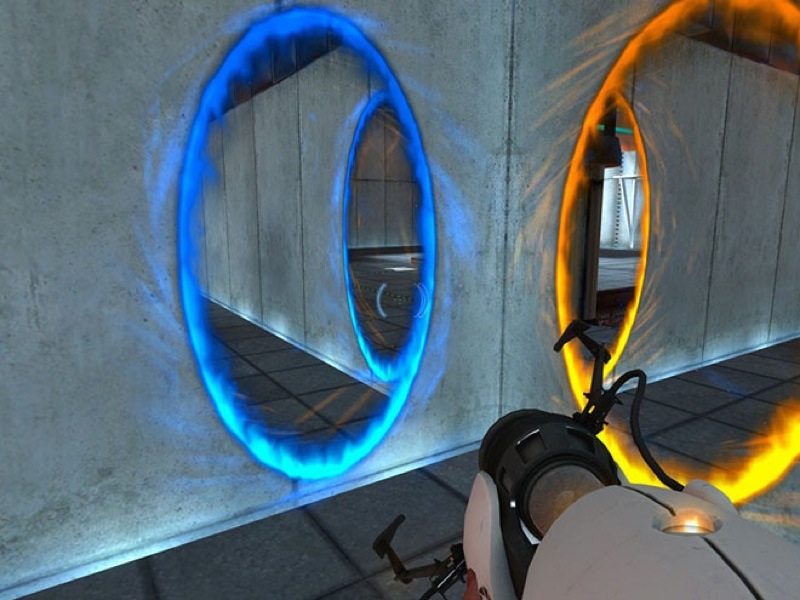This post has not been edited by the GamesBeat staff. Opinions by GamesBeat community writers do not necessarily reflect those of the staff.
It seems to me that while the industry continues to do gangbuster business, the originality of games has declined. The production process is a strange give-and-take relationship. Even though games now have budgets that would make some Hollywood directors jealous, tight deadlines and self-imposed censorship constraints turn many efforts into mere shadows of what they could have been.
As we play these top-shelf titles, we often grin and bear the problems that repetition and poor design present because we’ve come to expect them. We’ve become complacent with regard to faulty gameplay and outright errors, and in some cases, the companies that constantly reproduce them: I love Bethesda, but I hate the problems I’ve come to expect from their products.
Hope arises: As independent developers increase in both number and popularity, they’ve begun to provide the fresh innovation and talent that the industry needs to remain vital.
They may not save the business (in fact, I’m not convinced that it needs saving), but here are two ways that fringe developers help enrich the industry.
Fresh talent
You played that game with the portals, right? You know, that inconsequential 2005 game? Oh wait, it wasn’t 2005? I’m sorry; I must have been thinking of Narbacular Drop.
Narbacular Drop was a crazy, little freeware game made by a bunch of students over at DigiPen. And it was awesome. You used interconnected portals and gravity physics to solve puzzles. And at the time, it was utterly insane. You could drop items through the portals to activate switches, which resulted in zany, innovative fun.
I’m sorry anonymous reader, what did you say? That sounds like game you know? Oh, anonymous reader, you sure are hilarious!

These two games you’re confusing sound the same because the same people made them. The DigiPen team’s design acumen so impressed Valve that they hired all of them to make a game that revolved around the same premise, but with more polish than Narbacular Drop. It’s called Portal, and it won more awards than God himself can hand out.
But Valve isn’t the only company looking to independents for talent: Microsoft and many other major publishers are bringing a huge focus to indie projects. Xbox Live even has its own section for such games, and with mobile gaming becoming as massively popular as it is, many little- known developers are eschewing an uphill console-approval battle in favor portable design. Some of them are making a mint doing so.
These new developers see the flaws in the current game-design ethos as well as the rest of us. The only difference is that they have the chops and means to actually do something about it — while I just complain on a website.
And who knows? Maybe one of these ramen-fed, bank-account-depleted individuals will be the next Will Wright or Shigeru Miyamoto. Maybe a guy like Cave Story creator Daisuke “Pixel” Amaya will have an idea that reinvigorates the Japanese market. Or maybe Mega Man creator Keiji Inafune will start a company that will make the market die in a fire and come back stronger than ever.
Stretching the boundaries
I have a question: What’s better than Imagine: Babyz, Rocket Riot, and Halo?
The answer is Rocket Babies. Imagine it: a first-person shooter where you join a ragtag group of babies with rocket launchers set on saving the world. It’s got some love, some romance, and a bit of breastfeeding here and there. It sounds awesome, right? I’m going to stop writing this, so I can go pitch this idea to Bungie.
(….)
OK, so that didn’t work out as well as I thought it might. They laughed at me, and then chased me off their property with a pack of nerds dressed as Master Chief.
Development companies have a problem: They have to appeal to as many people as possible because if they don’t, they’ll shut down. That’s why every game that comes out — save for a special few — is the exact same experience as last year. A super strict bigwig, who’s never even played Pong, decides a company’s year-to-year timeline.
Even though people hate that Blizzard pushes back their games time and time again, no one can actually complain when they do release: The game comes out, and it’s damned good. It’s also why Fallout: New Vegas is so damned buggy and self-destructive. Obsidian made a game twice as large as Starcraft 2 in an eighth of the time.
The great thing about indie developers is that the only constraints are those they place on themselves: Given time and small amount of money, they can dream up impossible scenarios — as long as they have someone to program it, someone to animate it, and someone to write it (and sometimes, they don’t even need that).
One person made Minecraft (with the intermittent help of a few people). And its beta version has sold like hotcakes, launching its creator into absurd wealth and fame. But at its basic level, it is a game where you punch elements and then make things out of previously punched elements.
Could you see EA putting that game out? Hell no. If you pitched it, they’d punch you and fire you at the same time.
So, do you want to make Rocket Babies? If you give it a neat gimmick, a stable platform, and some decent graphics, I’d happily slap down a couple of dollars to play it on my mobile device of choice.
Indies can enrich the industry…by making Rocket Babies. Please, just make Rocket Babies. I’m ready to give up my money for Rocket Babies. Or make something else that is akin to Rocket Babies, but with babies attached to rockets.
But, whatever it is you’re making, please, keep making it. Indie developers are helping the industry more than they think they are.
(No really, make Rocket Babies.)
